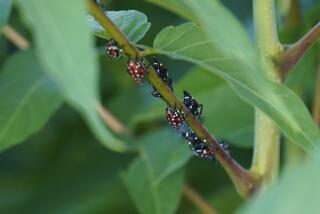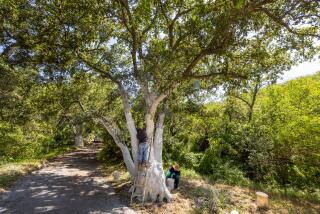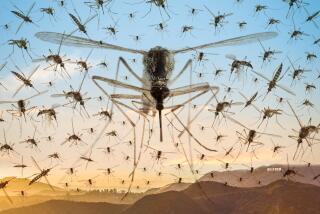Convergent lady beetle
[ HIPPODAMIA CONVERGENS ]
California’s best-known insect is undoubtedly the lady beetle. Bright, shiny red and very common in yards and gardens, this energetic little domed beetle is familiar to nearly everyone. All spring and summer, lady beetles and their larvae devour aphids as if they were tasty candies, making these insects extremely popular with gardeners. But in the late summer and fall, adults retreat to mountain canyons where they gather in huge masses. During the winter, hikers may stumble upon virtual carpets of convergent lady beetles covering every bush, rock and log in certain areas. These massive winter congregations stir to life on sunny days as individual beetles jostle with one another to find a spot to bask in the sun. Then in February or March, they rise in busy swarms and head back to their feeding grounds in the lowlands.
NATURAL HISTORY
Even though a lady beetle pupa is encased in a cocoon, it has the remarkable ability to “bite” by snapping its body sideways and nipping an intruder with the hard edges of its body segments.
KEY CHARACTERISTICS
The convergent lady beetle is named for two angled pale marks near its head; in general, these beetles are red with black spots but these markings
can be quite variable.
More to Read
Sign up for The Wild
We’ll help you find the best places to hike, bike and run, as well as the perfect silent spots for meditation and yoga.
You may occasionally receive promotional content from the Los Angeles Times.





